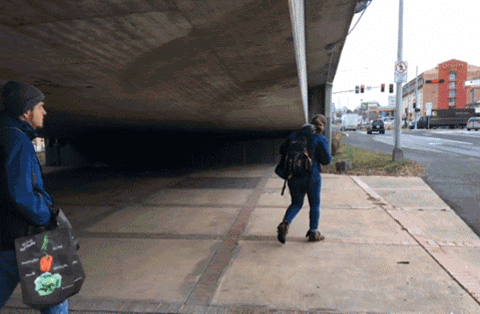Monday, January 29, 2018
In response to the Washington state legislature's so-called "Hirst fix" passed last week, Spokane County will likely repeal an ordinance that laid out restrictions for issuing building permits based on domestic wells in rural counties.
The 2016 Hirst decision put cities and counties, instead of the Department of Ecology, in charge of managing water availability. In Spokane County, the requirement that water
"It doesn't get us back to where we were, pre-Hirst, but it gets us to a better position," says Spokane County Commissioner Al French.
On Tuesday, the county commissioners will consider a repeal of the county's temporary zoning ordinance put in place to follow the Hirst decision.
Tags: Hirst , spokane county , water , water bill , josh kerns , al french , News , Image
ON INLANDER.COM
To the max
The city will start tearing down the IMAX theater in Riverfront Park today, ahead of schedule.
How many how much
It takes almost a week of outreach to figure out where people experiencing homelessness slept for one night in Spokane last week. Early this week, crews will continue finding people who slept in shelters, cars, and on couches last Thursday, as they try to get as accurate a picture as they can for the city's annual point-in-time count, which helps influence where resources are directed.
IN OTHER NEWS
They know we know they know
As the U.S. is looking into whether Russia meddled with the 2016 presidential election, Russia is now accusing the U.S. of attempting to meddle in the upcoming presidential there, set for March. (BBC)
Fitbit data reveals sensitive military locations worldwide
In "a major security oversight," heat maps of running activity tracked by fitness devices has revealed activity of U.S. soldiers at bases around the world that are well known and others that aren't meant to be, the Washington Post repots.
He'll be fine... probably
After a New York Times report revealed that President Trump wanted to fire special counsel Robert Mueller, who is leading the investigation into possible Russian election meddling, Democrats in Congress are calling for a bill to protect Mueller, but Republicans don't seem to be worried.
Helicopter crash in Garfield County kills one
A man died and two others were injured when a helicopter being used for animal tracking crashed Saturday in Garfield County, the Lewiston Tribune reports.
Tags: News , trump , russia , election , fitbit , military , imax , homeless , helicopter , spokane , garfield , Image
Sunday, January 28, 2018
We're barreling into the end of January and toward Super Bowl Sunday, so take advantage of the relatively mild winter (so far) and get out on the town using our event listings and Staff Picks. Here are some highlights of the week ahead:
Monday, Jan. 29
MUSIC | A quality tribute band can bring some serious fun to your evening (it's true!), and Cash'd Out is one quality Johnny Cash tribute act. The band plays The Pin! Monday night. Check 'em out:
Tuesday, Jan. 30
VISUAL ARTS | Future Defecations: Riverfront Park Public Restroom Planning Forum is a project of Philadelphia-based artist-in-residence at Laboratory Keenan Bennett. He's using models of radical open-bathroom designs, including one based on Riverfront Park’s topography, to explore how restrooms, once havens for spontaneous encounters between gay men, could, with the right design, again become boundary-breaking social spaces.
Tags: What's Up? , Image , Video
Friday, January 26, 2018

To get some idea of where people experiencing homelessness slept last night in Spokane and nearby communities, volunteer workers are heading out into the community for about a week, as they try to survey as many people as possible both in shelters and living outside.
The annual "point-in-time" count is required to be collected once a year for federal funding purposes, and is meant to give a rough idea of the size and scope of homelessness in the area. However, the agencies who participate help collect much more information than required by the federal count, expanding outside of shelters to try and talk to people sleeping outside, in cars, and on couches.
Everyone Counts
Just before 9:30 a.m. Friday, Jan. 26, Cailin Carpenter and Josiah Torba leave the Third Avenue administrative offices for Goodwill Industries of the Inland Northwest, lugging backpacks and bags filled with snacks, socks, deodorant, foot powder, hand warmers, and other items that people they encounter on the streets of downtown might need.
They're just one team of about 100 or so volunteers who are interviewing people for this year's count, using a digital app to collect information for the first time, rather than paper surveys that volunteers have had to fill out by hand in the past.
The two, who normally do outreach work like this through their daily work with Goodwill's Supportive Services for Veteran Families program, start their morning by walking under Interstate 90.
"They've cleared this area out," Torba says as he, Carpenter, and Spokane Homeless Services Program Manager Tija Danzig walk past a row of parked U-Haul trailers under the freeway. "Since adding the rocks, it's been a little lighter."
Tags: homelessness , point in time , count , spokane , spokane county , goodwill , services , stevens county , pend oreille county , survey , homeless , shelter , camping , News , Image

Get ready to say R.I.P. to the R.P.I. (the uh, Riverfront Park IMAX, that is).
The city has pushed up its plans to tear down the 1970s-vintage IMAX from what was going to be some time in March, to Monday, Jan. 29.
"The schedule is moving up several weeks to utilize heavy demolition equipment already on site," the city announced in a construction update Thursday afternoon.
The theater was installed after Expo '74, and there have been efforts over the years to save it, but ultimately, a lack of audiences is what sealed its fate.
The work is expected to last the week.
Tags: news , IMAX , demolition , spokane , riverfront park , work , construction , Image

ON INLANDER.COM
Free translated dot com
WSU's financial website has been translated into Spanish to make it easier for students who speak Spanish as their primary language.
Motown from out of town
Motown, the touring jukebox musical, is good, says Dan Nailen.
IN OTHER NEWS
Fired firefighter who fought firing probably shouldn't have been fired
The Washington state Supreme Court suggests that it's not okay to fire a person just because they're sharing their religious beliefs at work. (Spokesman-Review)
Write to your congresswoman, don't scream at her
Some of Shawn Vestal's most acidic columns have been aimed at Cathy McMorris Rodgers — but it's probably a bad idea to yell at her, he says.
Obstruction notice
Trump tried to fire Robert Mueller — but the White House counsel threatened to resign if he did. (Trump denies it. He denies a lot of things.) (New York Times)
But what about Hillary...?
Glad you asked. Back in 2008, Hillary Clinton kept on an adviser who'd been accused of sexual harassment for several months despite recommendations she
Tags: Morning headlines , News , Image
Thursday, January 25, 2018
A year ago, when Washington State University was redoing its financial aid website to make it "faster and friendlier," they came up with an idea, says Brian Dixon, WSU assistant vice president of student financial services.
"We said, 'what we should do is translate the whole page into Spanish,'" Dixon says.
Today, the university announced that it had launched a student financial services website that is entirely translated into Spanish. Dixon says WSU might be the first in the country to do so. He adds that it's an important step in helping bilingual students and their families navigate the financial aid system.
"Parents are part of financial decisions, and students were telling us about stories where they were translating stuff to parents, and it was confusing information to them," Dixon says.
The Spanish website, he says, makes it that much easier to make important financial decisions for a growing student demographic. According to WSU, in seven years the number of Hispanic undergraduate students as more than doubled at the university — from 1,405 Hispanics in 2009 to 3,512 in fall 2016. Hispanics make up roughly 14.1 percent of WSU's undergraduate students.
Tags: spanish , wsu , washington state university , website , News , Image
If ever an entity seemed a natural source for a jukebox musical, it's Motown Records and its decades of hits that help define American music history.
I challenge anyone to head to the production of Motown: The Musical running at the INB Performing Arts Center through Sunday and not leave humming one of the dozens of songs glutting the show from beginning to end, whether it's the Supremes or the Jackson 5 or Smokey Robinson. This morning after watching Wednesday night's opening performance, I turned on some Marvin Gaye to enjoy with my morning coffee.
Of course, none of us needs a theatrical production to know that the music delivered by the Detroit label founded by Berry Gordy is some of the best ever made. We've had decades of radio play, TV shows and movies to educate us to that fact. So the success or failure of Motown: The Musical beyond its virtually non-stop musical performances relies primarily on how interesting you find Gordy's personal story.
Make no mistake, Motown IS Gordy's story, from its scrappy beginnings as a record label to its later struggles to maintain success through strained personal relationships between Gordy and his stars, competing labels' "theft" of of the label's artists, and Gordy's insistence on pushing the label beyond his hometown and beyond just doing great music.
Tags: Arts & Culture , Image
ON INLANDER.COM
Sexual harassment and coverup, legal claim says
A woman was sentenced to Stevens County's work crew, where the supervisor commented on her breasts, her intimate relationship with her husband and her "sex appeal," according to her legal claim. Then another employee worked to cover it up, the claim states.
The kid next door
A local family took in Anthony Garver as a teenager. Now they're terrorized by the man he's become.
'Boobs look funny when you're having sex'
... is a small taste of Broad Comedy brand of humor. The all-female comedy team is coming to Spokane this Friday with fresh songs and sketches on parenting, abortion, climate change, North Korea and immigration. The show benefits Planned Parenthood of Greater Washington and North Idaho.
Crossed the line?
"I feel that if I would have given him the chance, then he would have slept with me even though he knew I was only 19," says an EWU student who says she endured sexual harassment from her supervisor, an EWU cop.
Wednesday, January 24, 2018
The question I've been asked most in the last couple months: "When is The Shape of Water finally going to play in Spokane?" Well, it'll finally be here this week, and with a whopping 13 Oscar nominations, the most of any other film this year, to its name.
Other than that, here's what you can look forward to in movie theaters this week.
HOSTILES (2 stars)
A racist military man (Christian Bale) is forced to transport a dying Cheyenne chief (Wes Studi) to his homeland in the 1890s. Scott Cooper’s brutal tale of frontier justice is, MaryAnn Johanson says, unfortunately far more concerned with the redemption of the white man than the Native American experience. Rated R.
MAZE RUNNER: THE DEATH CURE
Yes, they’re still making Maze Runner movies, and in this third and final installment, our generic post-apocalyptic hero and his friends must escape yet another trap-filled labyrinth. Or something. Rated PG-13.
Tags: Film , openings , Hostiles , Maze Runner: The Death Cure , Padmaavat , Phantom Thread , The Shape of Water , Paddington 2 , Arts & Culture , Image







